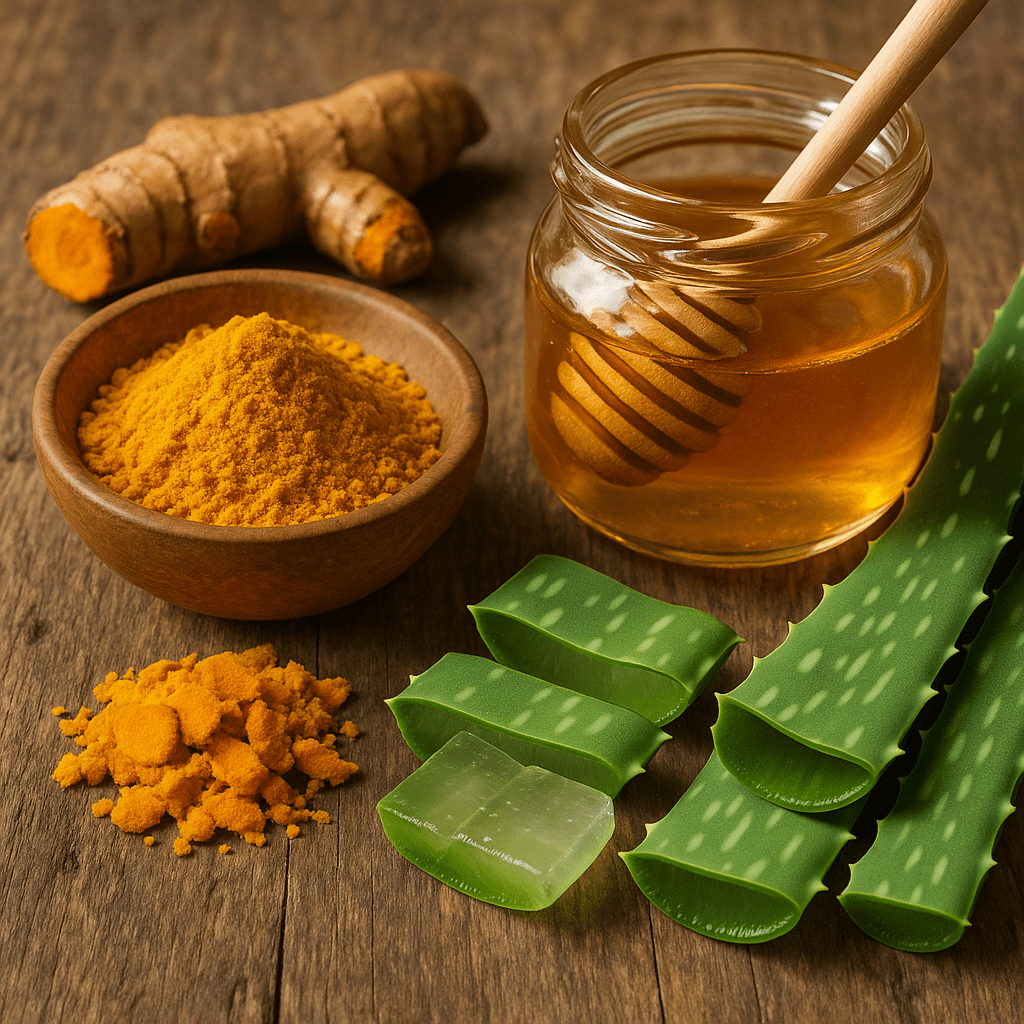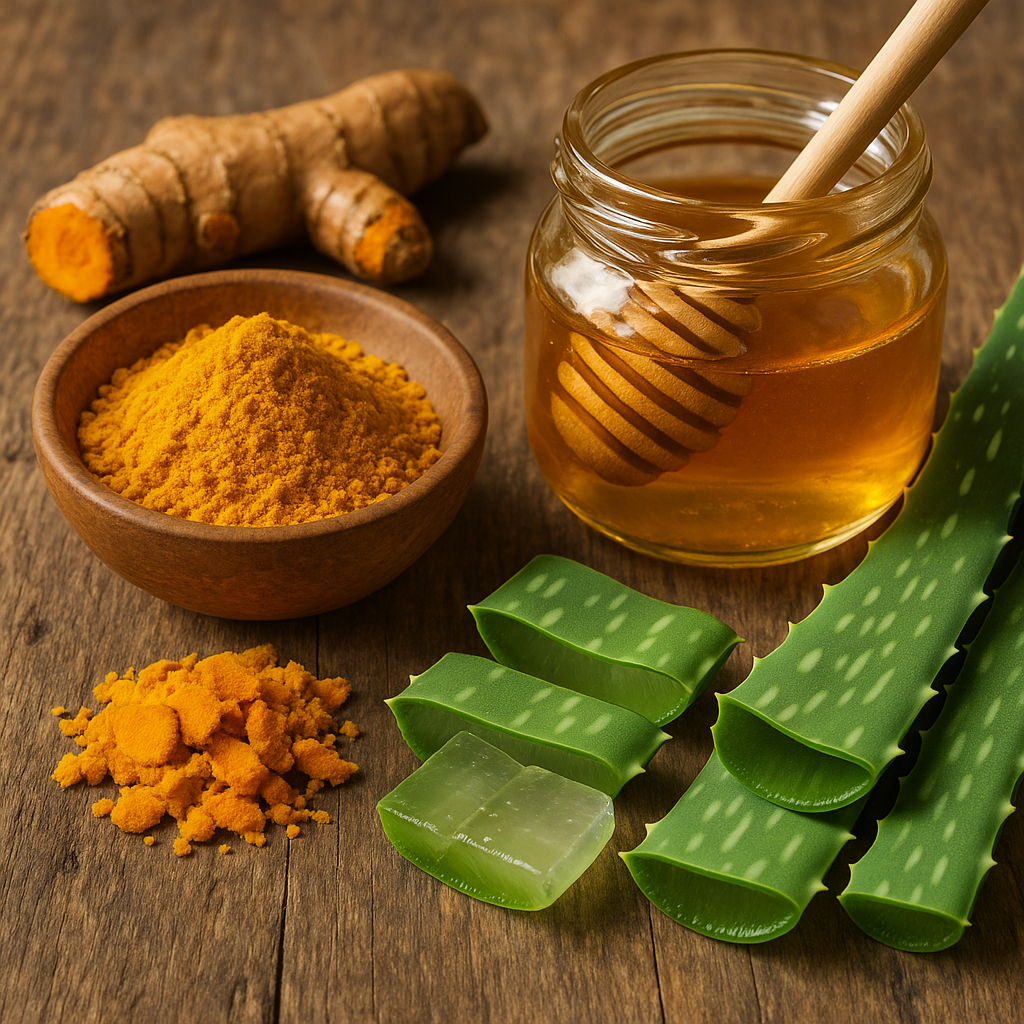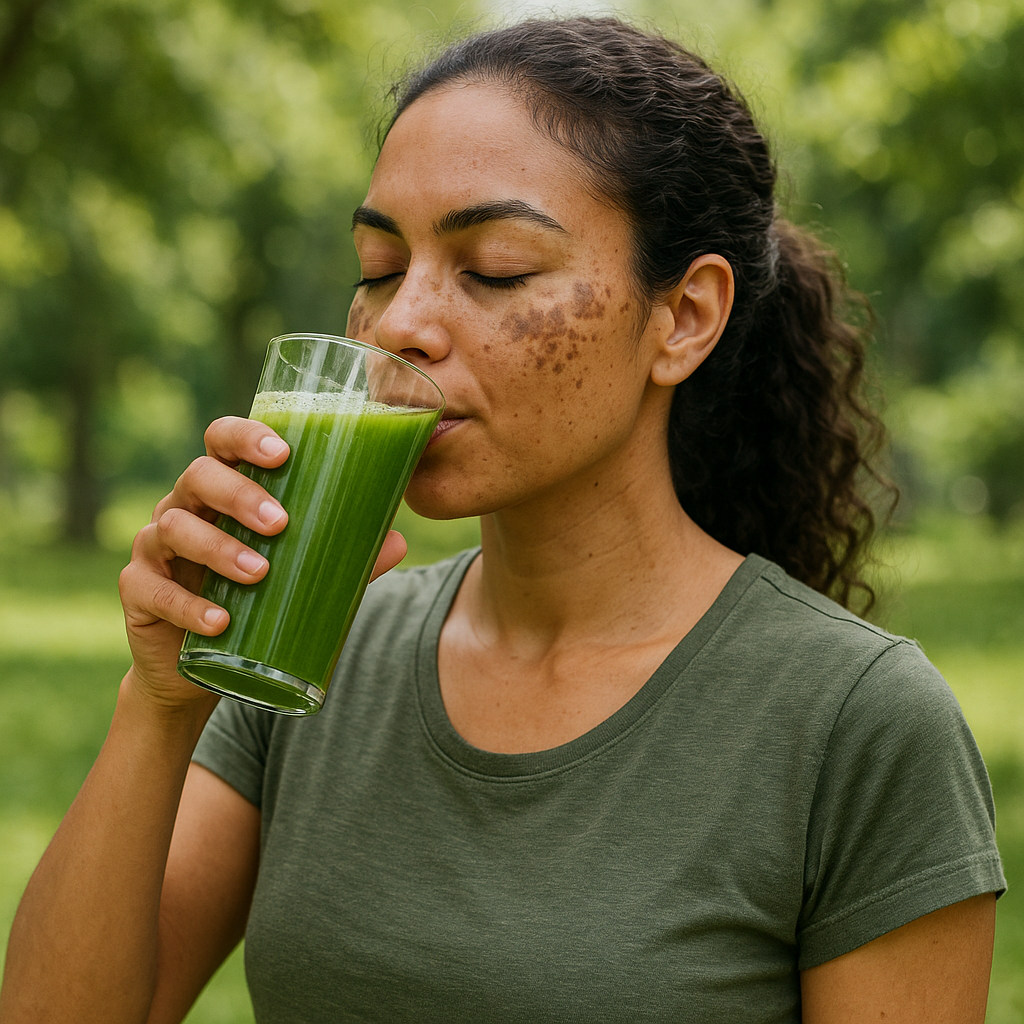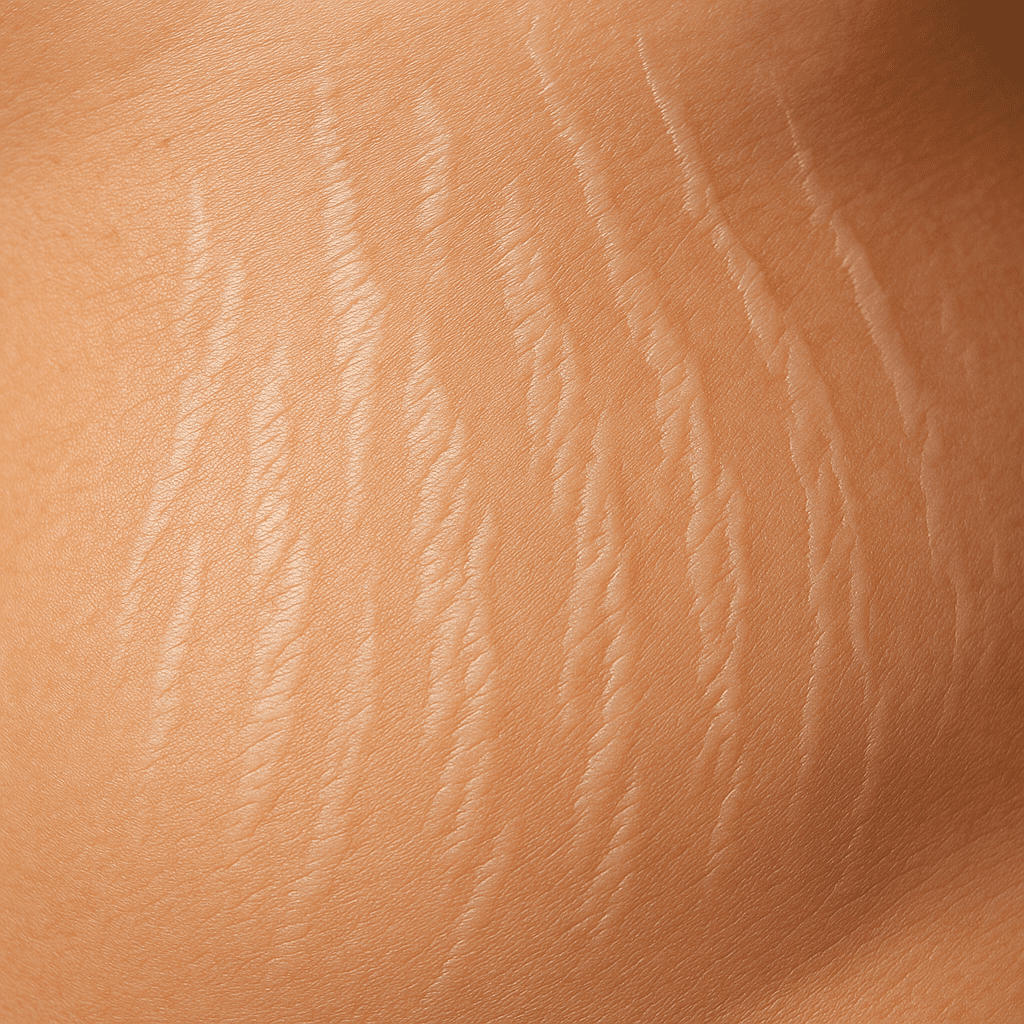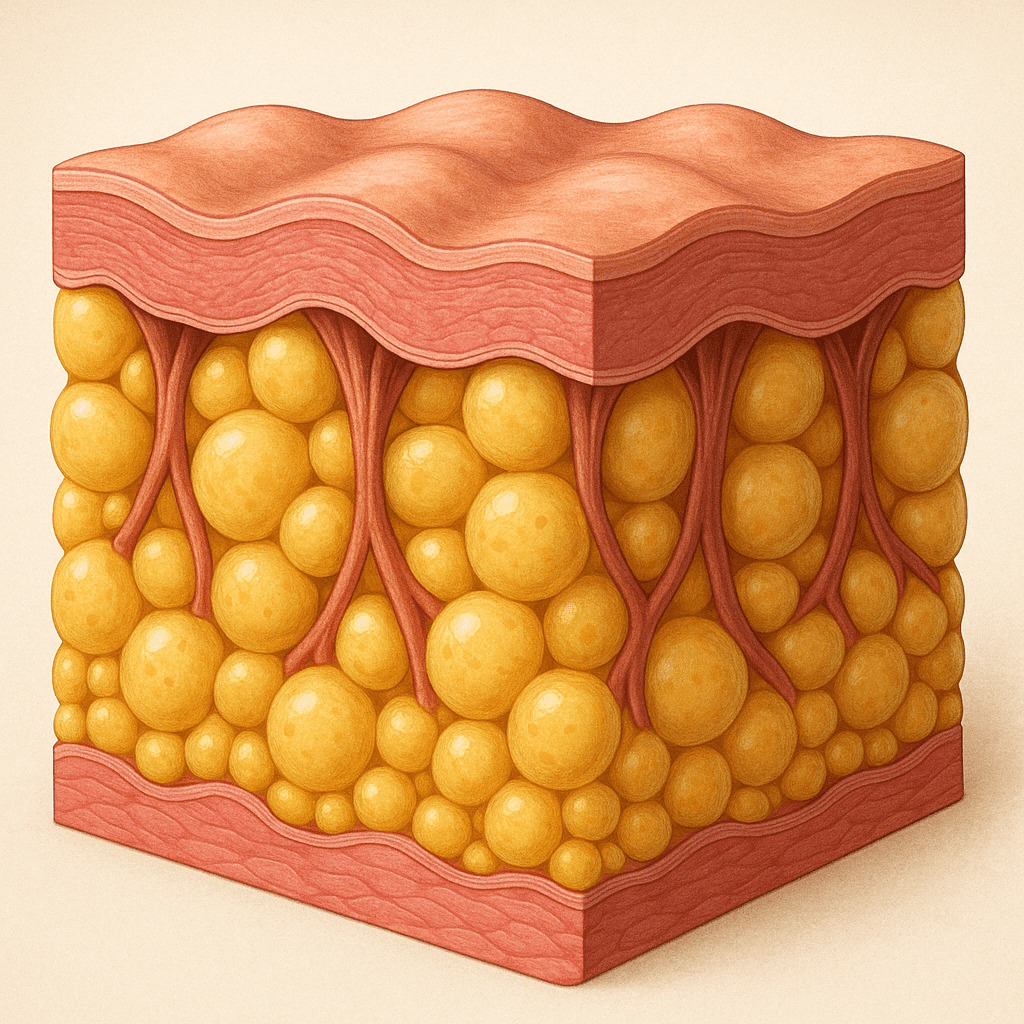But what are these dark spots exactly?
Here’s your complete guide to how to fade hyperpigmentation naturally.
- Sun exposure, uneven melanin production, or age.
- Some are stubborn, taking months or years to fade.
- Remedies that are rooted in ancient tradition, or on the other hand, practices backed by modern science.
- Calming skin inflammation to reduce pigment.
- Address internal causes through diet and lifestyle changes.
Let’s dive right in.
What Is Hyperpigmentation and Why Does It Occur?
Hyperpigmentation refers to patches of skin that become darker than the surrounding area. This happens because of excess melanin, the pigment responsible for the color of your skin.
Various factors cause melanin to produce unevenly. Sun exposure is one of the most common triggers, as UV rays stimulate melanocytes to produce more pigment for protection.
Other causes include hormonal changes, aging, inflammation from acne or injury, and certain medications or medical conditions.
The main types of hyperpigmentation include:
- Melasma: Often hormonal, common during pregnancy or with birth control usage.
- Age spots or liver spots: Appear with age in sun-exposed areas.
- Post-inflammatory hyperpigmentation: Dark spots left after skin inflammation or injury.
Understanding the type helps guide how to fade hyperpigmentation naturally and effectively.
(Verified with sources as of 2025-10-02)
Do you know your skin type and pigmentation causes? This helps tailor the best natural approach.
Top Natural Remedies to Fade Hyperpigmentation
Many are turning to natural remedies as gentle yet effective ways to even out skin tone. Let’s explore some of the best options you can try safely at home.
1. Flaxseed Gel for Calming and Fading
Flaxseed is an omega-3 rich superseed with anti-inflammatory properties that help calm irritated skin, a key factor in hyperpigmentation.
To make flaxseed gel:
- Boil 2 tablespoons of flaxseeds in 1.5 cups of water until it becomes sticky and gel-like.
- Strain the gel while warm and store it in a glass jar.
- Apply a thin layer to affected skin nightly. Leave on for 20 minutes or overnight.
Regular use can gently fade dark spots while giving your skin a glowing, healthy look (source).
2. Sandalwood, Turmeric, and Honey Brightening Mask
This classic combination is popular in ancient skincare traditions for a reason:
- Sandalwood soothes and lightens the skin.
- Turmeric contains curcumin, a potent antioxidant that reduces pigment formation.
- Honey hydrates and has antibacterial properties that promote healing.
Mix 1 teaspoon sandalwood powder, a pinch of turmeric, 1 teaspoon raw honey, and a few drops of rosewater into a paste. Apply to pigmented spots, let dry, then rinse with cool water. Use twice weekly for best results.
3. Licorice and Aloe Vera Serum
Licorice (Yesimadu) is a natural melanin blocker without harsh side effects, ideal for hormonal or stubborn pigmentation.
Mix 1 teaspoon licorice powder with 2 teaspoons fresh aloe vera gel and a drop of vitamin E oil. Apply this serum nightly to dark spots to brighten and calm skin.
4. Potato and Lemon Spot Treatment
Potato juice contains enzymes that lighten skin, and lemon juice’s high vitamin C helps reduce melanin production.
Grate a raw potato and squeeze out the juice. Add a few drops of lemon juice. Dab onto dark spots with a cotton ball, leave for 10 minutes, then rinse. Use no more than twice weekly and avoid if sensitive to citrus.
While these natural solutions can be effective, remember irritation worsens pigmentation, especially in darker skin tones. Always do a patch test before full application to avoid flare-ups.
Feeling skeptical? Keep reading to unlock how essential oils may complement these treatments.
How Essential Oils Can Help Reduce Pigmentation
Essential oils have gained popularity for their skin-healing properties, including reducing pigmentation and fading scars. Here are some recommended oils with depigmenting benefits:
Helichrysum Essential Oil
Known as the “immortal” oil, it has anti-inflammatory, antifungal, and antioxidant qualities. These promote skin cell regeneration and prevent free radical damage, making it useful for fading dark spots.
Frankincense Essential Oil
With boswellic acid, it reduces inflammation and supports skin healing. It can improve skin tone and reduce pigmentation over time.
Geranium and Lavender Oils
Both have antimicrobial and wound healing properties helping to make pigmentation less visible and promote new healthy skin growth.
Tea Tree Oil
Its antibacterial and anti-inflammatory powers help accelerate healing of acne scars and pigmentation from inflammation.
Rosehip Seed Oil
Rich in vitamin C and essential fatty acids, rosehip oil is widely used to fade discoloration and soften scars.
Important: Always dilute essential oils with carrier oils like almond or coconut oil before applying them to your skin to avoid irritation.
Consistency is key; most oils show noticeable results after 4-6 weeks of regular use (source).
While essential oils can enhance your pigmentation fading routine, balancing treatment with lifestyle factors is crucial, which we explore next.
Diet and Lifestyle Tips for Even Skin Tone
Hyperpigmentation isn’t only a skin-deep issue. Your diet and lifestyle choices play a major role in preventing and naturally fading dark spots.
Cool Down Heat in Your Body
Traditional medicine associates excess body heat with pigmentation flare-ups. Cooling foods like fennel tea, amla juice, soaked raisins, and tender coconut water can help reduce this heat and inflammation.
Consume Antioxidant-Rich Foods
Foods high in antioxidants combat oxidative stress, a driver of pigmentation. Berries, leafy greens, nuts, and brightly colored fruits provide important vitamins C and E that support skin repair.
Avoid Trigger Foods
Fried, spicy, and overly sour foods can worsen pigmentation symptoms by promoting inflammation and skin irritation.
Hydration and Sleep
Drink plenty of water daily to flush out toxins. Also, deep, undisturbed sleep is when your skin repairs itself—poor rest can exacerbate pigmentation problems.
Manage Stress
Stress can trigger hormonal shifts that worsen hyperpigmentation. Techniques like meditation, yoga, or pranayama breathing exercises, such as Chundraan Pranayam, help calm your mind and skin.
Integrating these habits enhances your natural skin brightening efforts, giving your skin a radiant, balanced glow.
Wondering how to combine these lifestyle changes with professional care for optimal results?
When to Consult a Professional for Hyperpigmentation
While natural remedies and healthy habits can significantly fade many hyperpigmented areas, some cases require expert care for the best outcome.
If you notice persistent, worsening pigmentation, or if dark patches are accompanied by skin changes like texture shifts or pain, a consultation with a skincare professional is advised.
Professional treatments that complement your natural care include chemical peels, microneedling, laser therapy, and prescription topical agents.
For example, at Simcoe Cosmetic Clinic, treatments such as chemical peels and microneedling can amplify natural pigment fading safely and effectively, renewing skin texture and tone.
Remember: photoprotection is a must. Always use broad-spectrum sunscreen with at least SPF 30 to prevent existing pigmentation from darkening further. Reapplying regularly is essential, especially during outdoor activities.
Have you been protecting your skin enough? This simple step makes or breaks successful fading.
Frequently Asked Questions About How to Fade Hyperpigmentation Naturally
Can hyperpigmentation fade on its own?
Yes, some post-inflammatory hyperpigmentation clears with time as the skin naturally renews. However, it may take months to years, depending on the cause and skin type.
Are natural remedies safe for all skin types?
Generally, yes, but sensitive or darker skin tones should patch test first since some ingredients, like lemon juice or turmeric, may cause irritation or worsen pigmentation.
How long does it take to see results from natural treatments?
Consistency is key; most natural remedies and oils show visible improvement after 4 to 8 weeks of regular use.
Is sunscreen necessary if I’m treating pigmentation naturally?
Absolutely. Sun exposure can worsen pigmentation, undoing your efforts. Broad-spectrum sunscreen protects your skin while treatments work.
Can diet really impact hyperpigmentation?
Yes, because inflammation and oxidative stress from poor diet can trigger pigment production. Nutrient-rich, anti-inflammatory foods support skin healing.
What ingredients should I look for in over-the-counter pigmentation creams?
Look for ingredients like vitamin C, niacinamide, licorice extract, and alpha hydroxy acids. These help regulate melanin and promote gentle exfoliation.
What’s Your Next Step?
Tell us in the comments: How will you apply this to your skin care routine? For personalized guidance on advanced pigmentation treatments, visit our Facial in Barrie guide.

